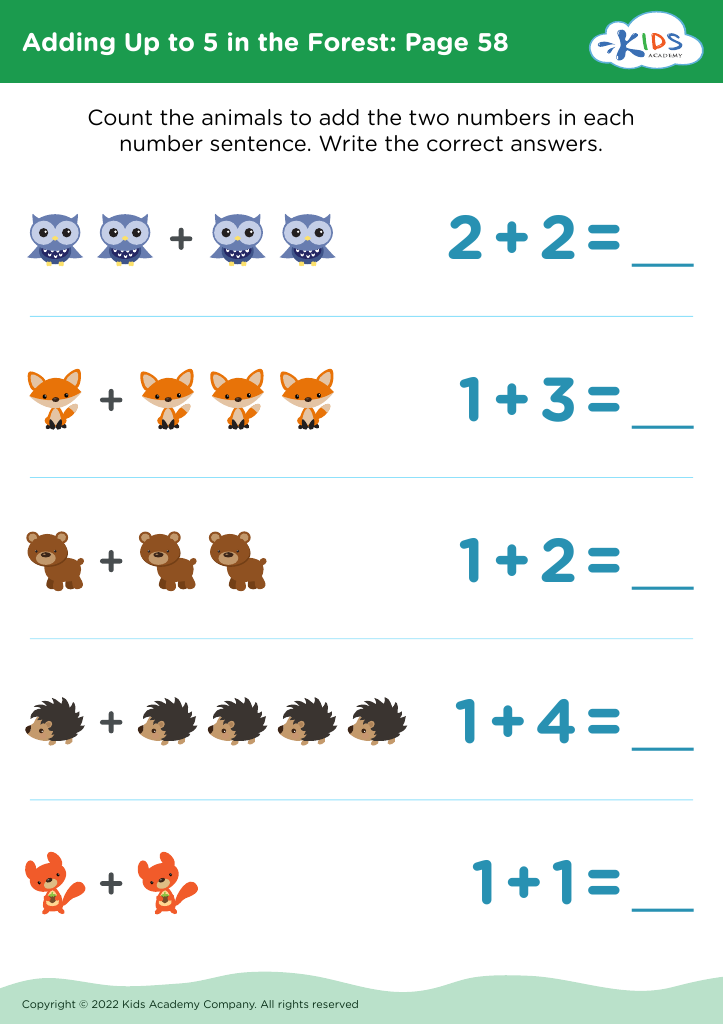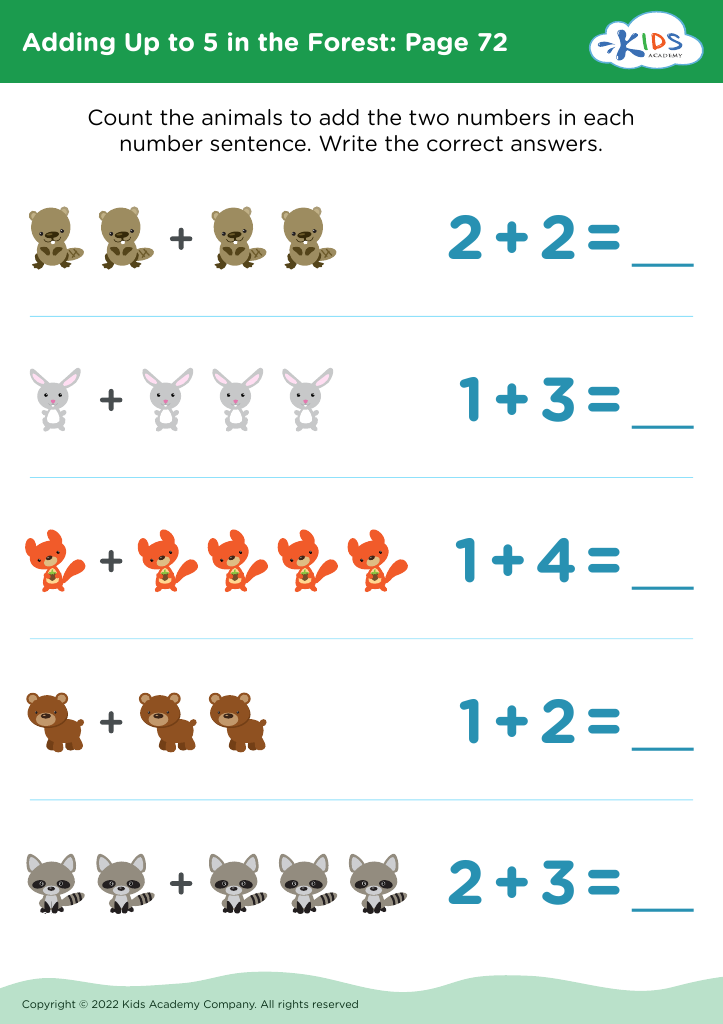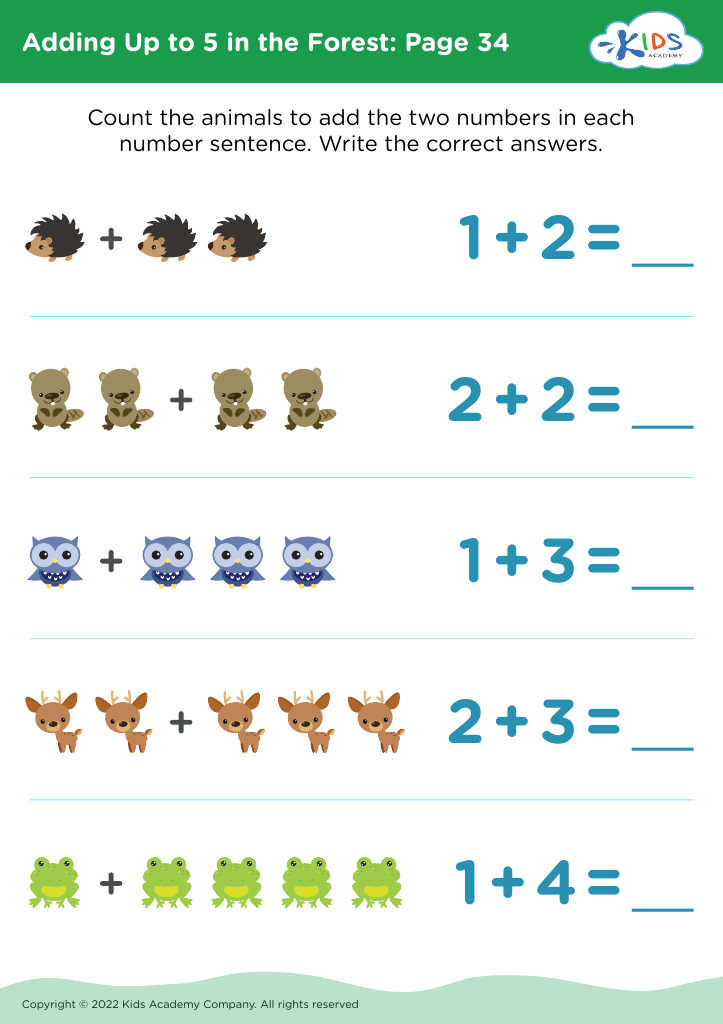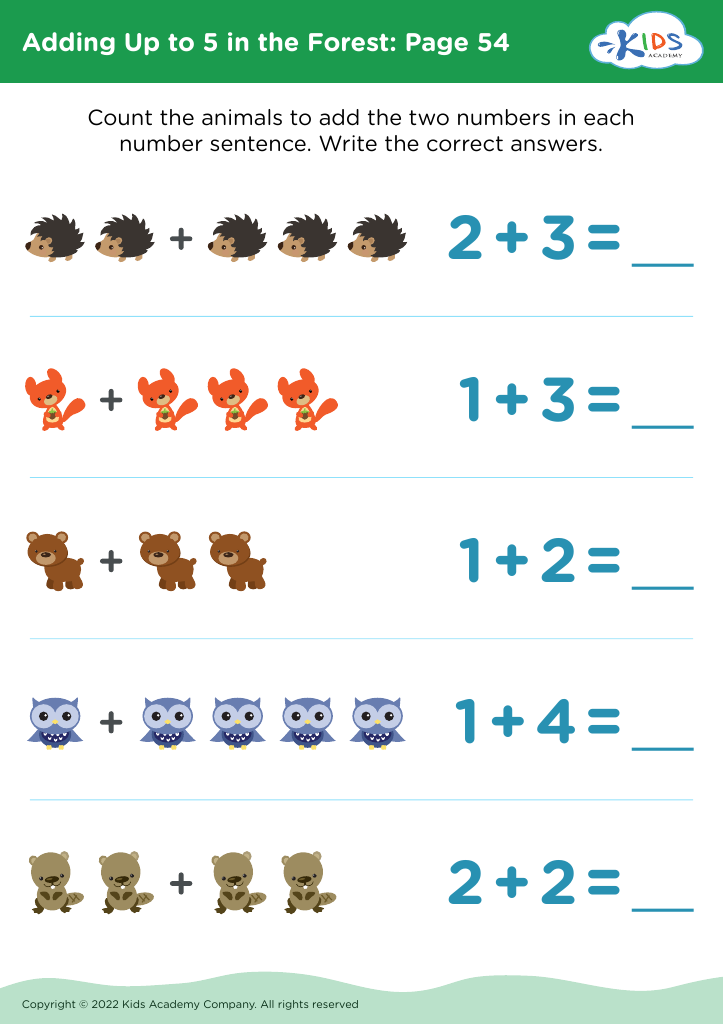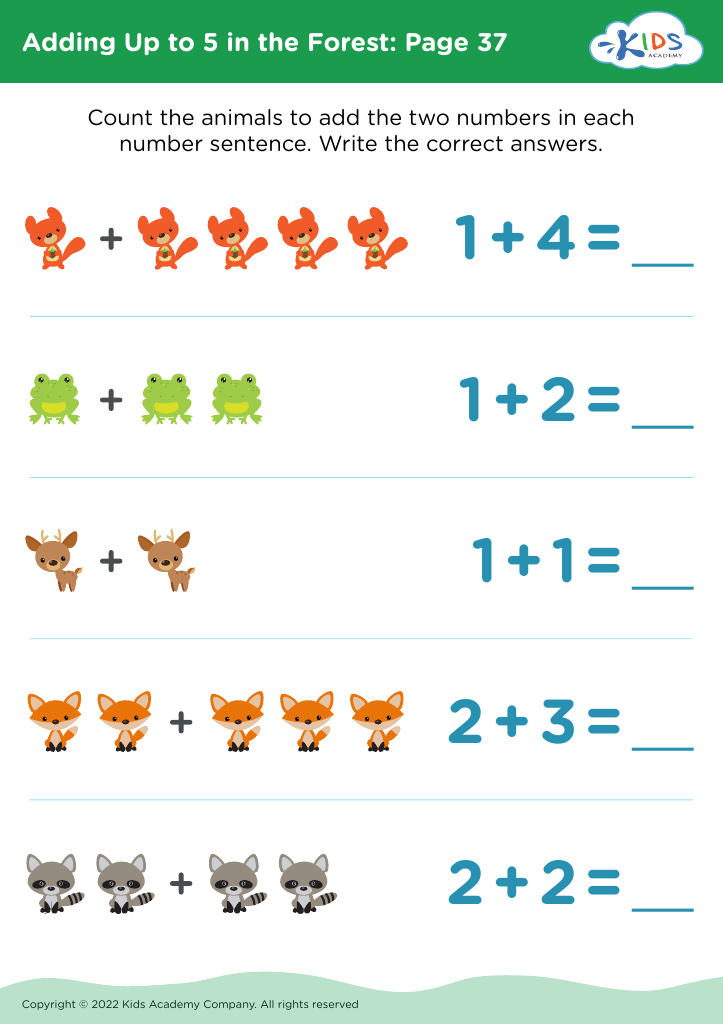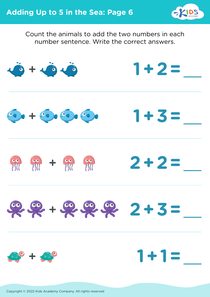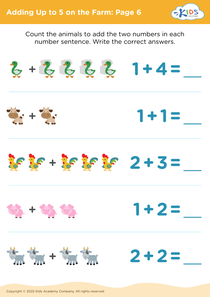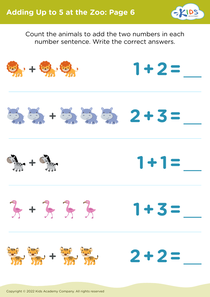Nature appreciation Adding in the Forest Worksheets for Ages 4-5
5 filtered results
-
From - To
Discover the joy of nature while enhancing math skills with our "Adding in the Forest" worksheets, designed specifically for ages 4-5! These engaging activities invite young learners to explore vibrant forest scenes as they practice basic addition in a fun, interactive way. Eachworksheet is filled with charming illustrations of woodland creatures and plants, fostering a love for the outdoors as children solve math problems. Perfect for classrooms or at-home learning, these worksheets use nature-themed concepts to make addition enjoyable and relatable. Encourage a sense of wonder and appreciation for the environment while building foundational math skills with our exciting resources!
Nature appreciation is crucial for young children, especially for those aged 4-5, as it fosters their cognitive, emotional, and physical development. Engaging with nature promotes curiosity and encourages exploration, essential qualities for early learning. When parents and teachers introduce children to nature, they spark a sense of wonder and discovery. Activities like observing trees, plants, and wildlife can enhance observational skills and improve vocabulary as children learn to describe their surroundings.
Getting children outside, particularly in forested areas, enriches their play experiences. It provides open-ended opportunities for imaginative play, encouraging creativity as they interact with natural elements. Physical activities, such as climbing, running, or gathering natural materials, promote health and build motor skills.
Additionally, introducing children to the importance of nature fosters environmental stewardship from a young age. Teaching them to appreciate and respect their natural surroundings can cultivate a lasting empathy for the earth. This foundational respect for nature not only supports the development of well-rounded individuals but also paves the way for a generation of environmentally responsible adults. Ultimately, this engagement nurtures their social skills, enhances emotional well-being, and forms a deep connection with the world around them, enriching their overall educational experience.
